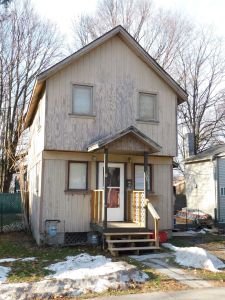 Even though I don’t drink green beer, or indeed ANY beer, I find it necessary to note St. Patrick’s Day. As I’ve mentioned, I’m at least a quarter Irish. As Ancestry refines its processes, I become MORE Irish, 28%, in fact, as opposed to 19% Nigerian.
Even though I don’t drink green beer, or indeed ANY beer, I find it necessary to note St. Patrick’s Day. As I’ve mentioned, I’m at least a quarter Irish. As Ancestry refines its processes, I become MORE Irish, 28%, in fact, as opposed to 19% Nigerian.
This means, of course, that my mother’s father’s mother, Margaret Collins Williams (1865-1931), and her still unidentified parents, even if they were wholly Irish, are not my only ancestors from the Emerald Isle. I must have OTHER ancestors to find, including on my father’s side. Parent 1 is my mom, and Parent 2 is my dad.
The Census Bureau is always useful in noting holidays, and this one is no exception. “Originally a religious holiday to honor St. Patrick, who introduced Christianity to Ireland in the 5th century, St. Patrick’s Day has evolved into a celebration of all things Irish.”
Six years ago, I noted a group called The Burns Sisters out of Ithaca, NY. I was fascinated by them because their late father, John, was the mayor of Binghamton when I was growing up. He and his wife had twelve kids. Here are Too Ra Loo Ra Loo Ral and Prayer Of St. Francis.
Chieftains
I was very fond of the group The Chieftains. Kelly wrote about them a few times, including this farewell to Paddy Moloney. He links to other videos as well.
But I decided to get really lazy and found something called Best of The Chieftains 2017, which has a YouTube chain of several videos. It includes most of the tracks from a 1995 album called Long Black Veil, which I love, and several from Irish Heartbeat, an album with Van Morrison that someone used to play in my office back in the day. And there are a bunch of other songs. Did I mention that there were 250 videos?
Finally, I found this loud, raucous cut called Irish Blessing by a group called JOETOWN.
Professional Irishman
Malachy McCourt, “who fled a melancholic childhood in Ireland for America, where he applied his blarney and brogue to become something of a professional Irishman as a thespian, a barkeep and a best-selling memoirist, died… in Manhattan. He was 92…
“In 1952, when he was 20, the Brooklyn-born Mr. McCourt reunited with New York.
“He embarked from Ireland with a ticket paid for with $200 in savings sent by his older brother, Frank McCourt, who had emigrated earlier and was working as a public school English teacher.”

 One of the dynamics in the nuclear unit when I was growing up was playing cards as family currency. I learned canasta from my paternal grandmother, Agatha Walker Green before she died in 1964. Then, I taught it to my great-aunt, Deana Yates, before she died in 1966. She and I also played 500 rummy.
One of the dynamics in the nuclear unit when I was growing up was playing cards as family currency. I learned canasta from my paternal grandmother, Agatha Walker Green before she died in 1964. Then, I taught it to my great-aunt, Deana Yates, before she died in 1966. She and I also played 500 rummy.
 It occurred to me that when I have written about my mother’s ancestors, I’ve almost always written about my maternal grandmother’s side but little about my mom’s paternal relatives. The reasons are several.
It occurred to me that when I have written about my mother’s ancestors, I’ve almost always written about my maternal grandmother’s side but little about my mom’s paternal relatives. The reasons are several. Charles Williams, the elder, married Margaret Collins c. 1883. They were together in 1915 but not in 1920. I assume they divorced since the elder Charles married Margaret Greenleaf in 1921, as I
Charles Williams, the elder, married Margaret Collins c. 1883. They were together in 1915 but not in 1920. I assume they divorced since the elder Charles married Margaret Greenleaf in 1921, as I  According to Your DNA
According to Your DNA